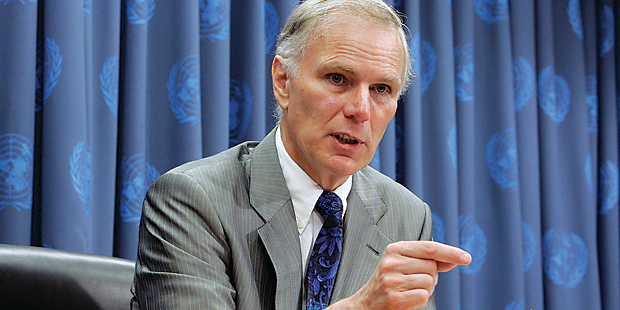Alston Gives U.N. Mission Report
Printer Friendly VersionAfter returning from a human rights mission for the United Nations, John Norton Pomeroy Professor of Law Philip Alston sharply criticized the U.S. judicial system for how the government applies the death penalty in Texas and Alabama, and how “enemy combatants” held at Guantánamo Bay prison are prosecuted.
As the U.N. Human Rights Council Special Rapporteur on extrajudicial, summary or arbitrary executions, Alston assessed whether due-process guarantees were being honored in death penalty cases in the U.S. After meeting with officials from the Departments of State, Justice, Defense and Homeland Security, Alston—a director of the Center for Human Rights and Global Justice—called for immediate reform. “There needs to be full accountability,” he said at a June press conference.
Six Guantánamo prisoners have been charged with capital offenses under what Alston called the “deeply flawed” Military Commissions Act of 2006. Alston said access to counsel is severely limited, and hearsay evidence is permissible. At least one of the six was subjected to waterboarding, yet coerced statements are admissible. “These trials should be aborted,” he said.
Alston also had harsh words for Texas, with the highest number of U.S. executions and death-row prisoners, and Alabama, with the highest per-capita rate of U.S. executions. He said the fact that 129 death-row inmates have been exonerated should be “an enormous wakeup call,” and he recommended repealing an Alabama law that allows judges unrestricted authority to override jury verdicts. “It’s possible that Alabama has already executed innocent people,” said Alston, “but officials would rather deny that than confront flaws in the criminal justice system.”
—

